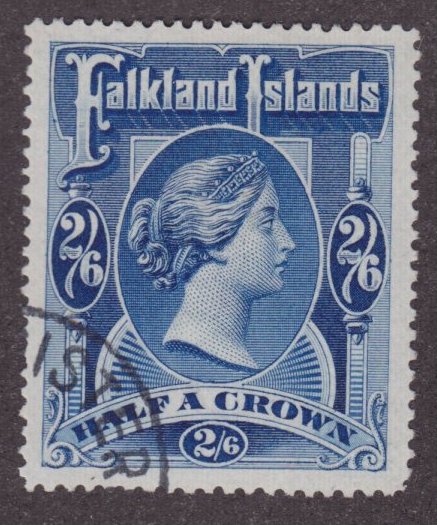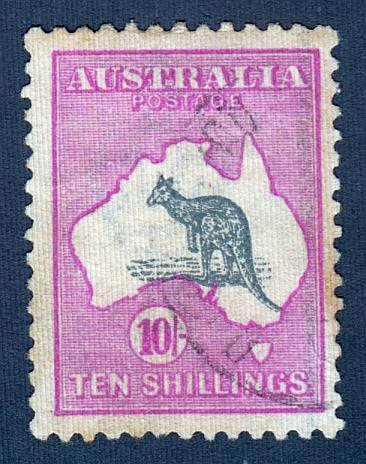
Discussion - Member to Member Sales - Research Center

Discussion - Member to Member Sales - Research Center



Login to Like
this post
This was a private printing by the Association Belgo-Americaine to mark the inauguration (July 16, 1950) of the Memorial du Mardasson (the building you see on the lower stamp). The fighting at Bastogne was a major passage of arms in the winter of 1944-45, frequently noted on Belgian stamps. The Association had been planning the permanent memorial since 1946.
Present on July 16 was General McAuliffe, whose one-word repudiation of the German suggestion that they surrender will surely be known to all Americans!

1 Member
likes this post.
Login to Like.
and for those not familiar with the Battle of Batogne, McAuliffe was assistant division commander of 101st airborne; he was filling in for Maxwell Taylor, who was in DC at the time.

Login to Like
this post

03:25:07pm
For those interested the more tragic Battles of the Saillant were a four year series of attacks, counterattacks, advances and retreats in and around the City of Ypres in Belgium during WW I (Once called "The Great War" ) that amounted to almost 400,000 casualties. A salient is a Bulge in the lines with one side held inside, while the other force attacks from the outside. The Ypres Saillant battle went on for four years and makes the currently more famous WW II "Battle of the Bulge" near Bastogne during a few months of the winter of 1944-'45 comparatively a skirmish.
(Corrected)

Login to Like
this post
Charlie:
In this case, the Bataille du Saillant is almost certainly a direct translation of "Battle of the Bulge" into French. After all, as you pointed out, a salient is a bulge in the lines. There would be no reason for there to be an American eagle on a stamp commemorating the five battles of Ypres, since the American Expeditionary Force was not a participant in any of them. Bastogne is also nowhere near Ypres, but is overprinted on all the pairs. All of this points to a commemoration of 'the Bulge', which was almost exclusively fought by US forces.
Darryl

Login to Like
this post

06:05:17am
I suppose you are right, thank you for the comment,
but it was a good chance for me to write
about another piece of history
that is often forgotten
and virtually never taught about in our schools.
The thought of 400,000 casualties
just for possession of a few square miles ( 20 or so ???)
of otherwise unremarkable farmland around a small city
staggers the imagination.
(I made a correction to my comment.)

Login to Like
this post
As a Canadian (and a history teacher), it never really struck me that there would be little discussion of the battles of the First World War in the U.S. I should have known better, since the U.S. entered the war in April of 1917 and were really spared from the bloodbath until later that year. Ypres gets a great deal of coverage in our curriculum since Canadians partipated in both the Second (first use of gas at essentially the first deployment of Canadian troops) and the Third (aka Paaschendale) Battles. Then again, I don't think I've ever even mentioned the Battle of the Bulge in 28 years of teaching about WWII ... our guys were slogging through flooded fields in Belgium and Holland during that bit of history.
...as for McAuliffe, do you think there was a bit of conscious self-editing in his response?


Login to Like
this post

09:07:55pm
" .... a for McAuliffe,
do you think there was a bit of conscious self-editing
in his response? ...."
I suspect that he was well aware of the effect,
as a morale booster, his words, or word,
would be on his men, somewhat alone and trapped,
surrounded in the dead of winter,
by what had been but a few years earlier,
the greatest fighting machine
the world had ever seen, up to then.
There would be negative effects on the German soldiers,
especially those who realized that this was Germany's last gasp,
manned by old men of the home defense forces, unwilling conscripts,
and sadly, young boys who would never grow up.
I am quite sure that he was aware that Patton's divisions
were en route from the south and some of Montgomery's divisions
from the north so it was really a matter of holding on.
He may even have been counting on the overcast skies parting,
allowing the vastly superior air forces to enter the fight soon,
with supplies dropped from cargo planes and air cover,
the be all and end all of the conflict,
soon to begin to pulverize the attacking German troops,
so his cheeky response would invigorate efforts across the world.
There has been, however, the possibility
that "Nuts" was just an automatic sign of the frustration
he felt of the desperate situation he and his troops were in,
later embellished by his staff who may have been more attuned
to the need for such a morale booster.
I am very proud to mention that next week,
on January fifth one of my grandsons
will start Airborne training.
On his successful completion
he will join the 101st Airborne Division.

5 Members
like this post.
Login to Like.

Good Morning! Can anyone tell me what I have here? Thank you.

Login to Like
this post

re: Belgium - What?
This was a private printing by the Association Belgo-Americaine to mark the inauguration (July 16, 1950) of the Memorial du Mardasson (the building you see on the lower stamp). The fighting at Bastogne was a major passage of arms in the winter of 1944-45, frequently noted on Belgian stamps. The Association had been planning the permanent memorial since 1946.
Present on July 16 was General McAuliffe, whose one-word repudiation of the German suggestion that they surrender will surely be known to all Americans!

1 Member
likes this post.
Login to Like.
Auctions
re: Belgium - What?
and for those not familiar with the Battle of Batogne, McAuliffe was assistant division commander of 101st airborne; he was filling in for Maxwell Taylor, who was in DC at the time.

Login to Like
this post
Silence in the face of adversity is the father of complicity and collusion, the first cousins of conspiracy..
26 Dec 2017
03:25:07pm
re: Belgium - What?
For those interested the more tragic Battles of the Saillant were a four year series of attacks, counterattacks, advances and retreats in and around the City of Ypres in Belgium during WW I (Once called "The Great War" ) that amounted to almost 400,000 casualties. A salient is a Bulge in the lines with one side held inside, while the other force attacks from the outside. The Ypres Saillant battle went on for four years and makes the currently more famous WW II "Battle of the Bulge" near Bastogne during a few months of the winter of 1944-'45 comparatively a skirmish.
(Corrected)

Login to Like
this post

re: Belgium - What?
Charlie:
In this case, the Bataille du Saillant is almost certainly a direct translation of "Battle of the Bulge" into French. After all, as you pointed out, a salient is a bulge in the lines. There would be no reason for there to be an American eagle on a stamp commemorating the five battles of Ypres, since the American Expeditionary Force was not a participant in any of them. Bastogne is also nowhere near Ypres, but is overprinted on all the pairs. All of this points to a commemoration of 'the Bulge', which was almost exclusively fought by US forces.
Darryl

Login to Like
this post
Silence in the face of adversity is the father of complicity and collusion, the first cousins of conspiracy..
27 Dec 2017
06:05:17am
re: Belgium - What?
I suppose you are right, thank you for the comment,
but it was a good chance for me to write
about another piece of history
that is often forgotten
and virtually never taught about in our schools.
The thought of 400,000 casualties
just for possession of a few square miles ( 20 or so ???)
of otherwise unremarkable farmland around a small city
staggers the imagination.
(I made a correction to my comment.)

Login to Like
this post

re: Belgium - What?
As a Canadian (and a history teacher), it never really struck me that there would be little discussion of the battles of the First World War in the U.S. I should have known better, since the U.S. entered the war in April of 1917 and were really spared from the bloodbath until later that year. Ypres gets a great deal of coverage in our curriculum since Canadians partipated in both the Second (first use of gas at essentially the first deployment of Canadian troops) and the Third (aka Paaschendale) Battles. Then again, I don't think I've ever even mentioned the Battle of the Bulge in 28 years of teaching about WWII ... our guys were slogging through flooded fields in Belgium and Holland during that bit of history.
...as for McAuliffe, do you think there was a bit of conscious self-editing in his response?


Login to Like
this post
Silence in the face of adversity is the father of complicity and collusion, the first cousins of conspiracy..
31 Dec 2017
09:07:55pm
re: Belgium - What?
" .... a for McAuliffe,
do you think there was a bit of conscious self-editing
in his response? ...."
I suspect that he was well aware of the effect,
as a morale booster, his words, or word,
would be on his men, somewhat alone and trapped,
surrounded in the dead of winter,
by what had been but a few years earlier,
the greatest fighting machine
the world had ever seen, up to then.
There would be negative effects on the German soldiers,
especially those who realized that this was Germany's last gasp,
manned by old men of the home defense forces, unwilling conscripts,
and sadly, young boys who would never grow up.
I am quite sure that he was aware that Patton's divisions
were en route from the south and some of Montgomery's divisions
from the north so it was really a matter of holding on.
He may even have been counting on the overcast skies parting,
allowing the vastly superior air forces to enter the fight soon,
with supplies dropped from cargo planes and air cover,
the be all and end all of the conflict,
soon to begin to pulverize the attacking German troops,
so his cheeky response would invigorate efforts across the world.
There has been, however, the possibility
that "Nuts" was just an automatic sign of the frustration
he felt of the desperate situation he and his troops were in,
later embellished by his staff who may have been more attuned
to the need for such a morale booster.
I am very proud to mention that next week,
on January fifth one of my grandsons
will start Airborne training.
On his successful completion
he will join the 101st Airborne Division.

5 Members
like this post.
Login to Like.

